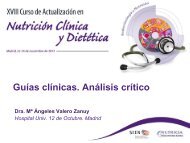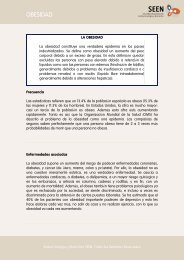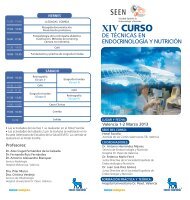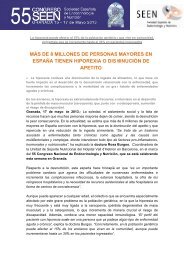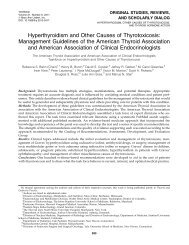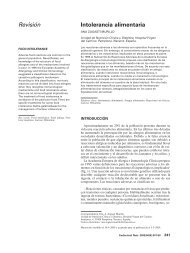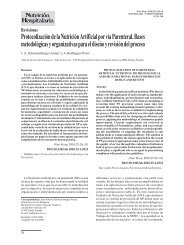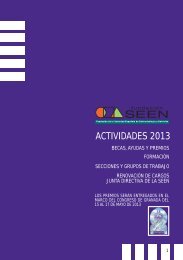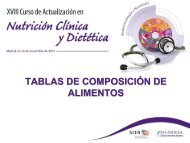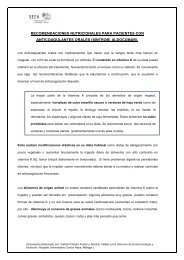Basic Concepts of Fluid and Electrolyte Therapy
Basic Concepts of Fluid and Electrolyte Therapy
Basic Concepts of Fluid and Electrolyte Therapy
Create successful ePaper yourself
Turn your PDF publications into a flip-book with our unique Google optimized e-Paper software.
Existing respiratory disease may be exacerbated perioperatively by<br />
atelectasis, respiratory infection, retained sputum, abdominal distension,<br />
splinting <strong>of</strong> the diaphragm, pain from the wound or high doses<br />
<strong>of</strong> opiates. Epidural analgesia may be advantageous in these respects.<br />
In severe cases, particularly those with prior lung disease, bronchial<br />
suction <strong>and</strong> mechanical ventilation may be necessary. Chest physiotherapy<br />
is also vital in many cases.<br />
Respiratory alkalosis – is due to hyperventilation, causing a low Pco 2<br />
<strong>and</strong> in chronic cases, some compensatory reduction in HCO 3 – . It may<br />
be iatrogenic due to deliberate or mistakenly overenthusiastic artificial<br />
ventilation, or secondary to anxiety or distress. It may be associated<br />
with paraesthesiae, tetany <strong>and</strong> chest pain.<br />
Management<br />
The principles <strong>of</strong> management involve correcting any abnormalities <strong>of</strong><br />
fluid <strong>and</strong> electrolyte balance (e.g. hypovolaemia, salt <strong>and</strong> water<br />
deficit). The underlying cause for the acid-base disorder (e.g. ketoacidosis,<br />
acute kidney injury, sepsis) must be diagnosed <strong>and</strong> managed<br />
promptly. In general, specific therapy to correct the HCO – 3<br />
or Pco 2<br />
should only be contemplated if the acid-base disorder is affecting<br />
organ function or if the pH is 7.6.<br />
Patients identified as having a metabolic acidosis secondary to ethylene<br />
glycol or methanol intoxication need immediate referral to the<br />
renal team for consideration for intermittent haemodialysis to remove<br />
the toxin. Additional management should be guided by advice from a<br />
poisons centre, but will include the intravenous infusion <strong>of</strong> alcohol to<br />
prevent the breakdown <strong>of</strong> ethylene glycol <strong>and</strong> methanol to their toxic<br />
metabolites by alcohol dehydrogenase. If available fomepizole, an<br />
alcohol dehydrogenase inhibitor is the preferred first line therapy.<br />
70



